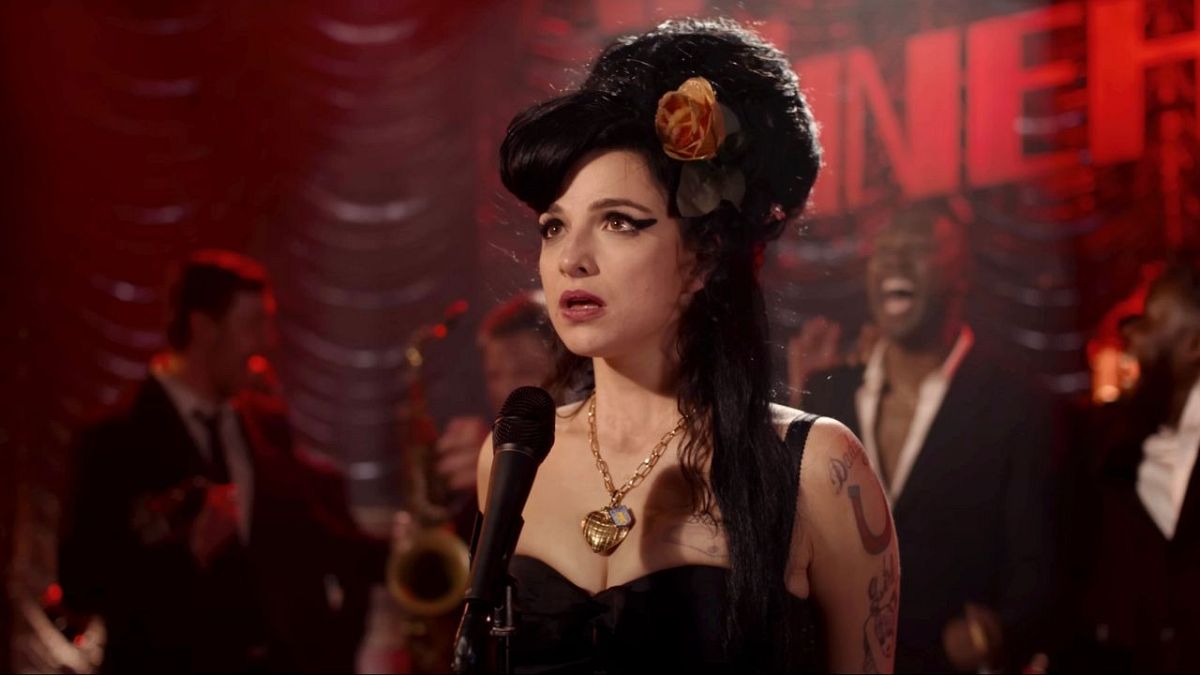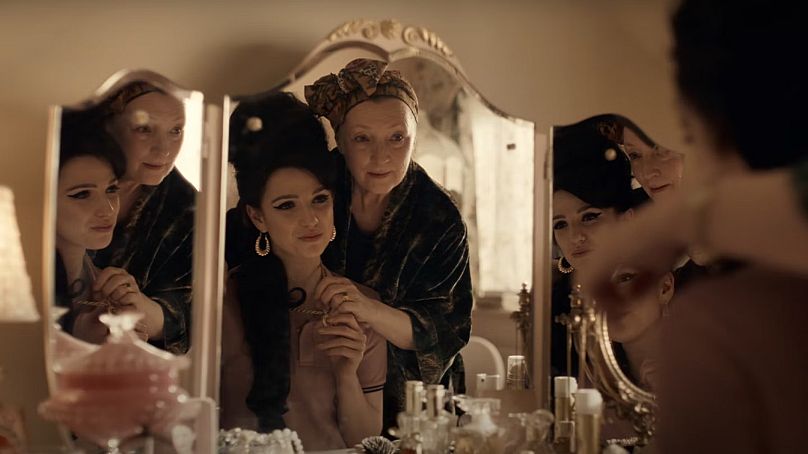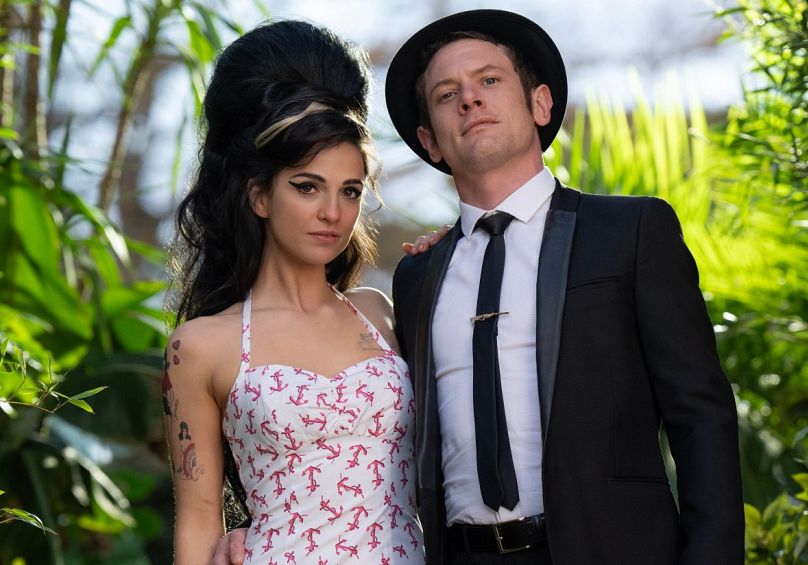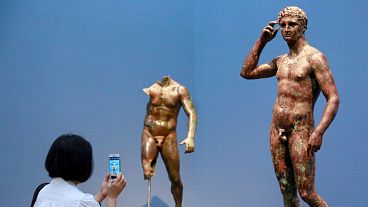Reviews of the Amy Winehouse biopic have shown the new moralistic divide among movie critics.
Reviews are in for Back to Black, the new Amy Winehouse biopic from director Sam Taylor-Johnson. While very few outlets are adorning it with five stars, opinions have varied wildly with some giving it credit as a moderately enjoyable music film as others slam it a consecration of the singer’s memory.
The dividing factor between these two approaches: what does a film based on a real person owe them?
From the moment that Back to Black was announced, public opinion of the film was critical verging on opprobrium.
People squirmed at the idea that Winehouse’s story – that of a supremely talented musician whose drug and alcohol addiction, problematic relationships and paparazzi hounding, died aged just 27 – would be rehashed as an exploitative blockbuster for an Oscar-wannabe to teeter around on stilettos doing their best drunkard impression for circa two hours.
It wasn’t an unfair pre-release concern. Winehouse’s life was marked by press intrusion and the exploitation of her personal life for public gain. For her life – she died in 2011 – to be so quickly turned around into a similarly intrusive film would seem to have shades of the same exploitation.
Added insult to injury, unlike the quite brilliant 205 documentary Amy by Asif Kapadia, which used historical footage to paint an honest picture of the star and the malignant influence of her father, Mitch Winehouse, this film had been signed off by Winehouse’s estate – administered by Mitch.
When the first images of the film started to leak, with Marisa Abela cast in the lead role, it also didn’t help that they seemingly confirmed everyone’s concerns. In every image, Abela looked bleary eyed through the thick mascara and beehive aesthetic.
On Twitter, discussion of the film’s potentially exploitative angle even comingled with criticism of director Taylor-Johnson on both a personal (the age-gap between her and her husband) and professional (everyone conveniently forgot that Nowhere Boy is pretty damn good).
Then finally, the film came out. And for many critics, Back to Black perfectly fit into their expectations.
In Little White Lies, which assigns a three-tiered rating system including the reviewer’s anticipation and retrospective enjoyment of the film, Rogan Graham writes: “As much as the party line insists this film is a celebration of Amy’s musical genius, it is as salacious and cruel as any tabloid cutting from the noughties – only invested in the bloody ballet pump left in the street, not the complexities of living a very public life with addiction,” in his triple one-star review.
Hamish MacBain, for the Evening Standard, in his one-star review, writes: “Before we even get to the deep moral and ethical problems, Back to Black is, on the most basic of levels, a poor, poor piece of filmmaking.”
For the Observer, Wendy Ide gives it a two-star review that states how the gig for Abela is the “most thankless gig imaginable” and that’s just the top of the tirade of low-point scoring reviews.
There are also many three- (and some four-)star reviews knocking around as well. That the film has divided critical opinion is a given. If anything, that’s a good quality in a film usually.
The issue is with each good review, it makes the opposing point around the film’s relationship with the truth of Winehouse’s actual life. Writing opposite Ide for The Guardian, Peter Bradshaw’s four-star review finishes on this point. “Back to Black is essentially a gentle, forgiving film and there are other, tougher, bleaker ways to put Winehouse’s life on screen.”
“This is a fairytale about a love story in a chaotic destructive environment. Whether you think or not Amy Winehouse’s story should be told in this way,” says Mark Kermode in his video review. “I have seen some, I think, foolish one-star reviews, which have taken objection. It’s not a one-star film, it’s a three-star film.”
Between the good and bad reviews, the single dividing factor is whether the reviewer is willing to give the film breathing room to be a fictional depiction of real life.
What does an artwork about history owe the actual history? There isn’t one single answer. “Get a life,” Ridley Scott told the historians criticising the accuracy of his film Napoleon. Yet, the magical realism and non-linear storytelling in biopic Rocketman was lauded as it captured the feel of Elton John’s stardom.
Is it, in part, a problem of marketing? Was Back to Black presented as if it would be accurate? I’m not sure. I’m tempted to blame a more recent phenomenon in the world of film (and art in general) criticism. As politics has become more divisive, there’s a tendency for moralising to seep into the realm of artistic enjoyment.
Take, for example, the barrage of criticism that Poor Things received for its depiction of Bella Baxter’s sex life as a fully grown woman with a baby’s brain. Many found the very concept of the film an outright endorsement of paedophilia without taking the time to question: a) this is a completely bonkers fictional world and shouldn’t be taken literally; and b) perhaps that tension over the acceptable is part of filmmakers Yorgos Lanthimos and Emma Stone’s intention.
That kind of nuance is lost so readily these days with the need for criticism, specifically that which is published online, to be on the right side of the argument. In this case, it feels like the need to criticise the film’s historical accuracy has swayed negative reviewers away from an objective appreciation of the film’s qualities. While every moderately good review critiques Back to Black ’s plot and dialogue, Abela’s central performance is always praised. It’s telling that in the moralising takes, her performance always takes an equal battering.





